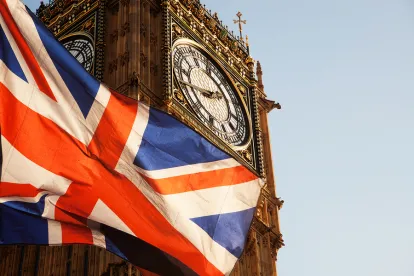In a landmark case last month, a businessman linked to notorious criminals surrendered £10 million in property, land, cash and other assets at the conclusion of an unexplained wealth order (UWO). This was the first successful prosecution where the UWO was granted because of the target’s association with others involved in serious domestic crime (rather than alleged foreign political corruption).
In Depth
Unexplained Wealth Orders
UWOs were introduced pursuant to the Criminal Finances Act (CFA) 2017 in order to bolster the United Kingdom’s proceeds of crime regime. In its 2017 Impact Assessment, the Home Office concluded that the size of the UK financial and professional services sector, the open economy and the attractiveness of the London property market to overseas investors made the United Kingdom unusually exposed to financial crime. It found the current anti-money-laundering legislation inadequate and considered that the new measures introduced by the CFA 2017 would enable law enforcement agencies to be increasingly effective in seizing the proceeds of crime.
The UWO specifically was the government’s response to the difficulty in bringing civil recovery proceedings where there was little information about an individual’s source of wealth. The UWO places the onus on the subject of the order (the respondent) to explain the origin of assets that appear to be disproportionate to the respondent’s known lawful wealth.
The High Court may grant a UWO in respect of any property if it is satisfied that:
-
There is reasonable cause to believe that the respondent holds the property (whether in entirety or in part with others) and that the value of the property is greater than £50,000.
-
There are reasonable grounds for suspecting that the known sources of the respondent’s lawfully obtained income would have been insufficient for the purposes of enabling the respondent to obtain the property.
-
The respondent is either a politically exposed person or there are reasonable grounds for suspecting that the respondent (or a person connected to the respondent) is, or has been, involved in serious crime (anywhere in the world).
If a UWO is made, the respondent will be required to provide a statement setting out:
-
The nature and extent of their interest in the property
-
How they obtained the property (including how any related costs were met)
-
Other information in connection with the property as may be so specified.
Businessman to Hand Over £10 Million at Conclusion of UWO
The National Crime Agency (NCA) pursued Mansoor Mahmood Hussain after he appeared on the NCA’s radar during an investigation into organised crime in Leeds. Although he initially appeared to be a successful businessman with no previous convictions, investigations led the NCA to believe that he acted for notorious criminals, including a murderer and drug trafficker, and that he laundered their profits through a property empire.
Whilst the NCA could not obtain the evidence required for charges of money laundering, it obtained a UWO from the High Court in July 2019, which compelled Mr Hussain to explain how his wealth had come from legitimate sources.
By way of a sealed recovery order on 2 October 2020, the NCA reached a settlement agreement with Mr Hussain, which required him to hand over the vast majority of his assets, including almost £10 million in properties, assets and cash.
This is the first time a UWO was obtained based solely on an individual’s alleged involvement with others connected to serious organised crime domestically (rather than foreign corruption) despite there being no convictions against the individual himself. As such, this case is a milestone demonstrating the power of UWOs and one that has significant implications for how the NCA will pursue illicit finance in the United Kingdom, by focusing on UK general crime in addition to overseas individuals linked to foreign regimes.
It is also important to note that the prior UWOs granted were in respect of real property, whereas this case resulted in the surrender of personalty in addition to realty. Indeed, the law allows for a UWO to be granted in respect of money, real and personal property, things in action, and all other intangible or incorporeal property.
We can expect to see the further use of UWOs in the future to address money laundering. That is a laudable goal, and money launderers should beware. However, one must always be concerned whenever dealing with such a powerful tool that the discretion to deploy it is exercised for its proper purposes and not in a discriminatory or politically motivated way. The United Kingdom is a long-established democracy, and there is great faith that prosecutorial discretion will be and is being exercised appropriately and is, in any event, subject to judicial review (indeed there has already been a successful judicial challenge against a UWO). Nevertheless, caution and careful monitoring of the use of UWOs is definitely the order of the day.




 />i
/>i

